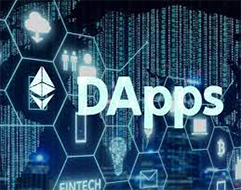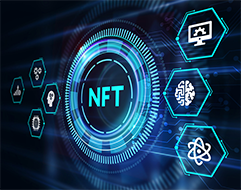Key Cryptocurrencies
Ethereum and Smart Contracts

Exploring Ethereum, Its Use of Smart Contracts, and Its Influence on the Market
Introduction to Ethereum:
Ethereum is a decentralized, open-source blockchain platform created by Vitalik Buterin and launched in July 2015. Unlike Bitcoin, which is primarily designed as a digital currency, Ethereum is a versatile platform that allows developers to build and deploy decentralized applications (DApps) using smart contracts.

Differences from Bitcoin: While Bitcoin aims to be a store of value and a medium of exchange, Ethereum's primary goal is to enable the development of decentralized applications. Bitcoin's blockchain is designed to handle simple transactions, whereas Ethereum's blockchain can execute complex code and run applications. Ethereum introduced the concept of smart contracts, which are self-executing contracts with the terms of the agreement directly written into code.
Smart Contracts:
Smart contracts are a fundamental innovation introduced by Ethereum, enabling the automation and execution of agreements without intermediaries.
Explanation of Smart Contracts: Smart contracts are self-executing contracts where the terms and conditions are directly encoded into the blockchain. These contracts automatically execute and enforce the terms when predefined conditions are met, ensuring transparency and reducing the need for intermediaries.
How They Work: Smart contracts are written in programming languages like Solidity and are deployed on the Ethereum blockchain. Once deployed, they cannot be altered, ensuring the integrity and security of the agreement. Transactions triggered by smart contracts are recorded on the blockchain, providing an immutable and transparent record.
Use Cases and Benefits:
- Financial Services: Smart contracts enable decentralized finance (DeFi) applications, allowing for lending, borrowing, and trading without intermediaries. Examples include Uniswap, Aave, and Compound.
- Supply Chain Management: Smart contracts can automate and verify the stages of a supply chain, ensuring transparency and reducing fraud.
- Real Estate: Smart contracts can automate property transactions, reducing the need for intermediaries and speeding up the process.
- Healthcare: Smart contracts can securely manage patient data and automate insurance claims, ensuring privacy and efficiency.
- Benefits: Smart contracts reduce costs by eliminating intermediaries, enhance security through immutable records, increase transparency with open and verifiable transactions, and improve efficiency by automating processes.
Ethereum's Ecosystem:
Ethereum's ecosystem is vast and continually growing, encompassing various applications and innovations that extend its functionality beyond simple transactions.
Decentralized Applications (DApps): DApps are applications that run on decentralized networks, such as Ethereum. These applications cover various sectors, including finance, gaming, social media, and more. DApps are designed to be open-source, transparent, and resistant to censorship. Examples include Cryptokitties (gaming), Brave (browser), and Augur (prediction market).


Decentralized Finance (DeFi): DeFi refers to a system of financial applications built on blockchain technology that aims to recreate traditional financial systems in a decentralized manner. DeFi platforms offer services such as lending, borrowing, trading, and insurance without relying on centralized intermediaries. Key DeFi projects on Ethereum include MakerDAO (stablecoin and lending), Uniswap (decentralized exchange), and Synthetix (derivatives trading).
Non-Fungible Tokens (NFTs): NFTs are unique digital assets representing ownership of a specific item or piece of content, such as art, music, or virtual real estate. Unlike cryptocurrencies, which are fungible and interchangeable, each NFT is distinct and can be bought, sold, or traded on various marketplaces. Ethereum's blockchain is the primary platform for creating and trading NFTs. Notable NFT projects include CryptoPunks, Bored Ape Yacht Club, and Decentraland.

Conclusion:
Ethereum has revolutionized the blockchain landscape by introducing smart contracts and enabling the development of decentralized applications. Its innovative use of smart contracts has opened up numerous possibilities across various industries, from finance to gaming to healthcare. Ethereum's ecosystem continues to grow, with decentralized applications, DeFi platforms, and NFTs driving innovation and adoption. As Ethereum evolves and scales, it remains at the forefront of the blockchain revolution, shaping the future of decentralized technologies.
